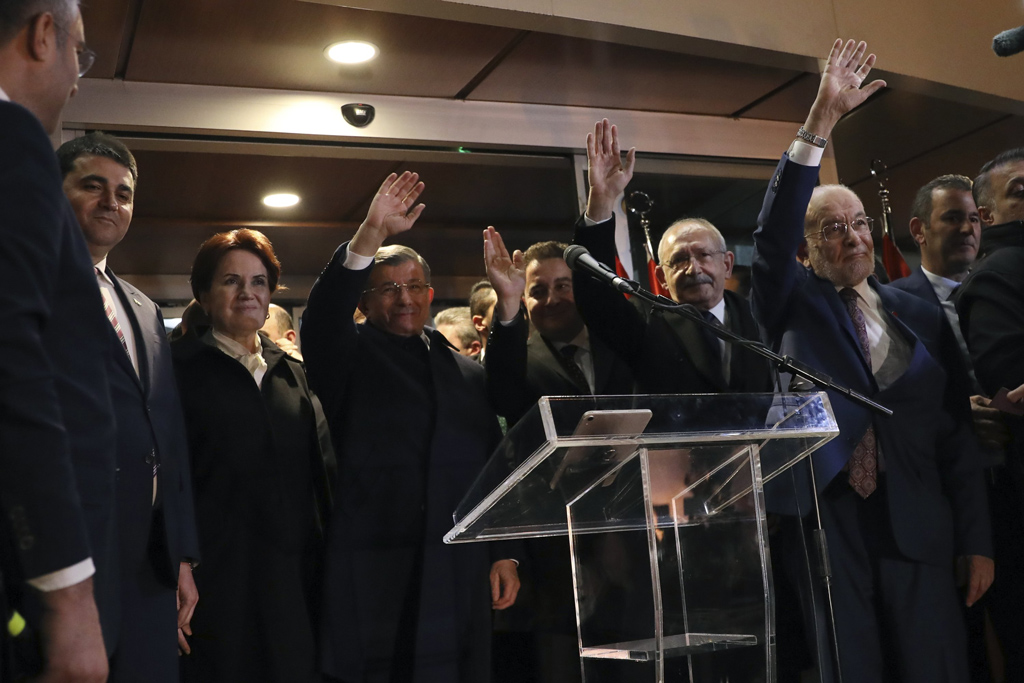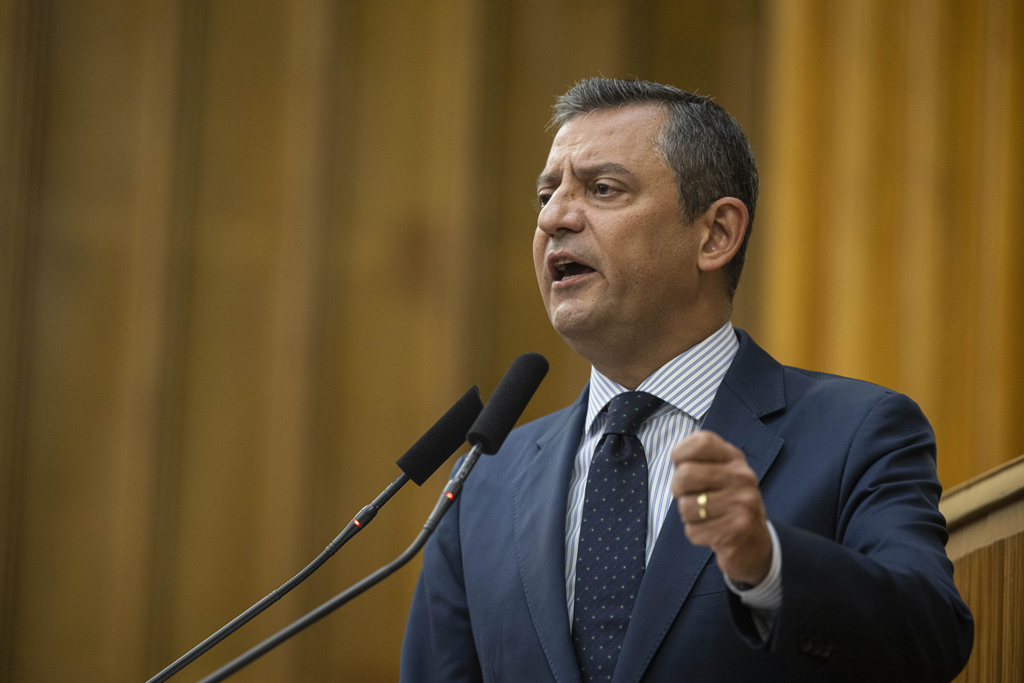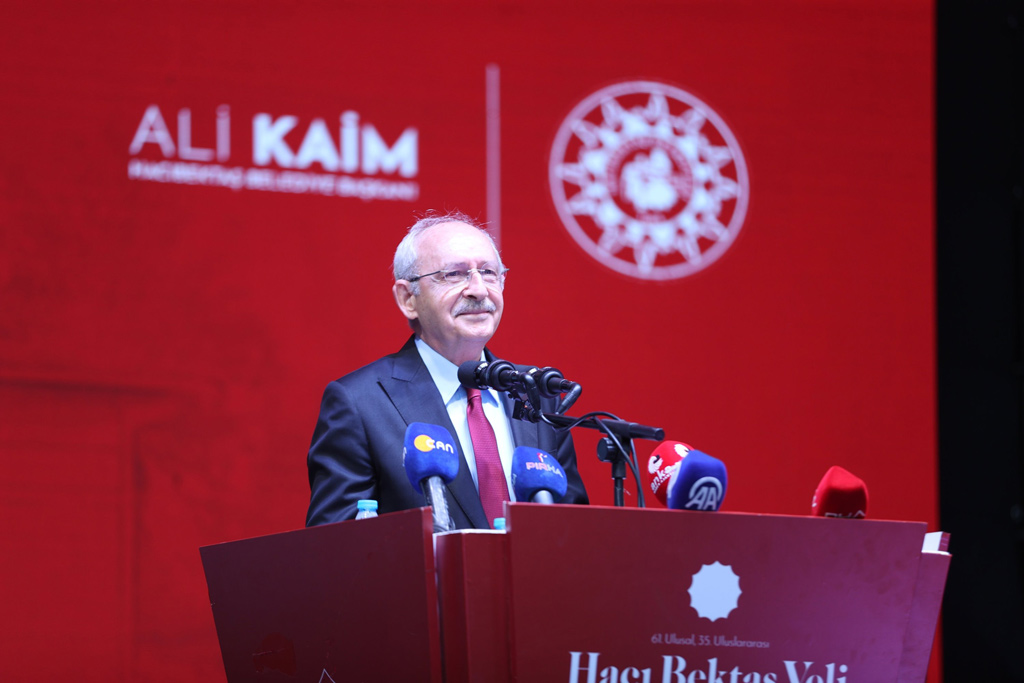The attempt by the Good Party (IP) chairperson, Meral Akşener, not to form any alliances for next year’s municipal elections continues to set the political agenda in Türkiye. The current situation does not just highlight the opposition’s ongoing crisis. It also reflects on the May 2023 coalition that the main opposition Republican People’s Party (CHP) spearheaded. That is why Akşener’s new discourse, on top of the CHP’s internal strife and "change" debate, remains the subject of a heated political debate.
Despite responding to Akşener’s criticism with caution and silence, for now, the CHP and right-wing fringe parties won’t refrain from addressing those accusations infinitely. That is because the IP’s supporters increasingly endorse their chairperson’s plan to go it alone – an idea that the CHP base, too, might eventually embrace. Those potential developments would further strengthen
the perception that the opposition parties won’t work together in next year’s municipal elections.
Fully aware of what is happening, pro-CHP commentators promptly launch a campaign to issue a stern warning to opposition leaders. It goes without saying that they mainly fear the possibility of an opposition defeat if the various parties field their own candidates. Indeed, they criticize Akşener for assuming the risk for that potential outcome and saying that “we did not form the Good Party to get the CHP’s candidates elected.” They add that the opposition’s failure would usher in an era of “opposition-less politics” – an existential problem that, they say, would make everything worse in the country. Some commentators go as far as to claim that “opposition-less politics” would lead to the “emergence of a dictatorship where the almighty government shall oppress all social groups” – a cliché with admittedly limited impact.
Who bears responsibility?
Who is to blame for opposition-less politics? Does CHP Chair Kemal Kılıçdaroğlu, who imposed his candidacy on the opposition to cause the "grand coalition" to fail, bear responsibility? Or shall we assign blame to Akşener for temporarily leaving the alliance right before the election? Or perhaps the right-wing fringe parties for driving a hard bargain? Or are pro-opposition commentators and journalists guilty of letting the opposition celebrate before actually winning anything?
None of those questions have yet been answered – possibly with the exception of Akşener’s latest remarks. It is possible that the alliance that the opposition formed, was problematic in and of itself. The IP may have had more room to maneuver and connect with the People’s Alliance base, had the pro-PKK Peoples’ Democratic Party (HDP) not officially endorsed any of the two main alliances and instead went its own way. Making sense of alliance politics is obviously challenging. Yet, the best time to try and crack that code would be next year’s municipal elections.
Going forward, Akşener’s greatest challenge will be to withstand the incessant attacks of the secularist pro-CHP media establishment. Indeed, pro-CHP commentators adopted a "securitizing" discourse regarding the potential cost of losing next year’s municipal elections – which is deeply rooted in the same polarizing assumptions that the IP chairperson vehemently opposes. Still, they
assign blame for the opposition’s potential defeat to the IP and embrace good old anti-Erdoğanism – which never seems to go out of style.
According to media reports, the main opposition party intends to rely on anti-Erdoğanism to persuade Akşener to join their electoral alliance. Ironically, anti-Erdoğanism doesn’t run deep enough to score a victory for the opposition – mainly because the IP base has been attacked so many times by CHP supporters that they lost their interest in anti-Erdoğanism.
At the same time, the CHP’s idea of an “alliance of bases” is equally problematic because it rests on the assumption that opposition voters would vote CHP, as the most popular opposition party, even if the IP were to
field its own candidates. Yet, that assumption does not rest on a reliable analysis of IP supporters and that movement’s potential for growth. If Akşener backs up her rejection of electoral alliances with strong policy proposals, which differ from the CHP, and appealing candidates, she might be able to consolidate her party’s base.
Lose-lose equation
It is certainly true that forming an alliance means sharing credit for success and failure. Yet, the IP
suffered setbacks in 2019 and 2023 by joining opposition alliances. The question is whether the CHP’s success automatically represents an achievement for the IP and other opposition parties.
Whereas the People’s Alliance benefits the Justice and Development Party (AK Party), the Nationalist Movement Party (MHP) and the New Welfare Party (YRP), joining forces with the CHP proved costly for right-wing parties. The Democracy and Progress Party (DEVA), Future Party (GP) and the Felicity Party (SP) may have received 10 parliamentary seats each – which CHP supporters continue to criticize – but that does not conceal their failure. Specifically, those right-wing parties committed political suicide by siding with the CHP and fielding their parliamentary candidates on the CHP ticket.
The bottom line is that collaborating with the CHP comes with a heavy price tag no matter how well one negotiates the terms of that agreement. If opposition-less politics is a thing indeed, it exists due to the main opposition party’s
never-ending crisis.
[Daily Sabah, September 11, 2023]








